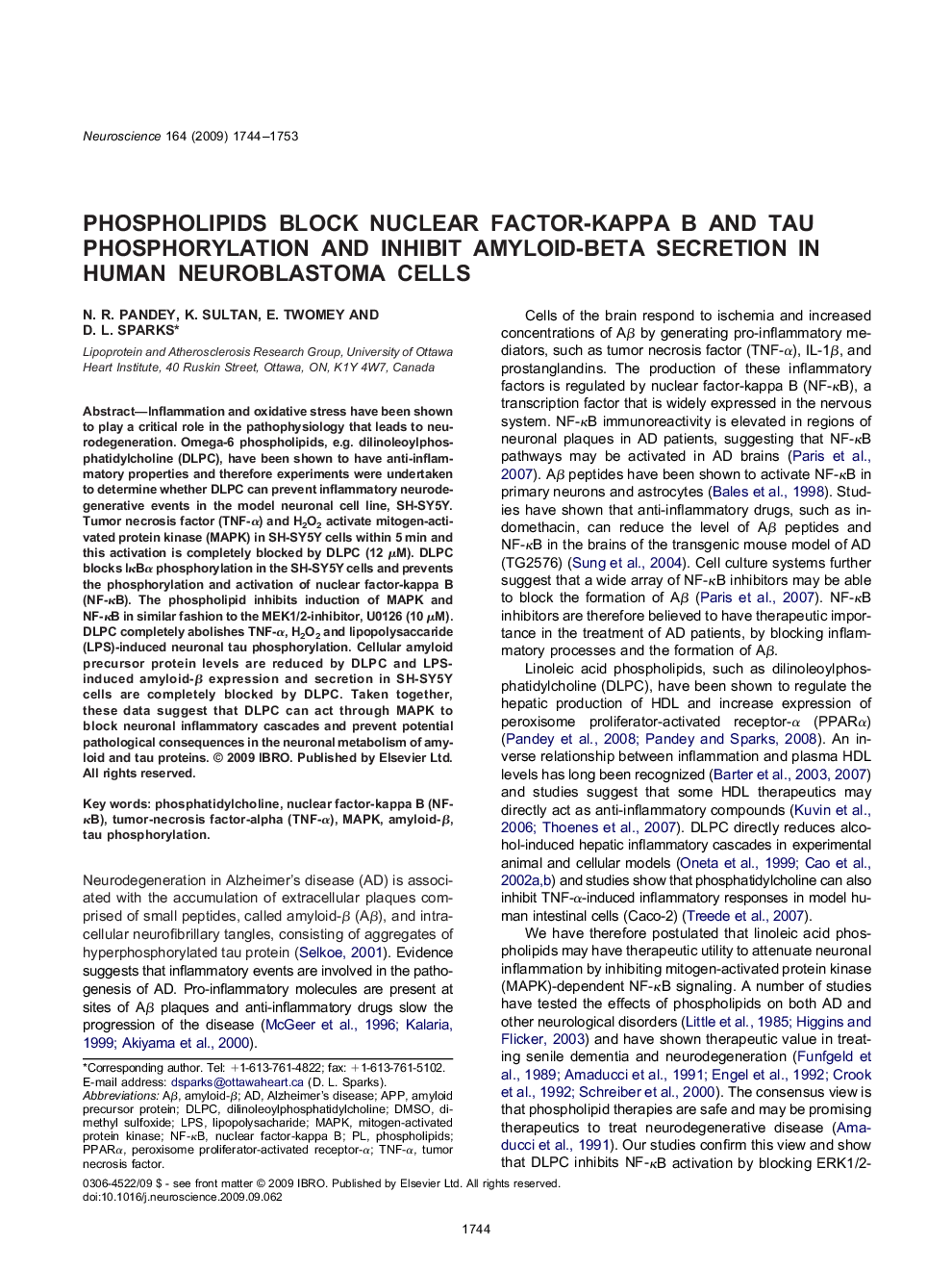| Article ID | Journal | Published Year | Pages | File Type |
|---|---|---|---|---|
| 6277953 | Neuroscience | 2009 | 10 Pages |
Inflammation and oxidative stress have been shown to play a critical role in the pathophysiology that leads to neurodegeneration. Omega-6 phospholipids, e.g. dilinoleoylphosphatidylcholine (DLPC), have been shown to have anti-inflammatory properties and therefore experiments were undertaken to determine whether DLPC can prevent inflammatory neurodegenerative events in the model neuronal cell line, SH-SY5Y. Tumor necrosis factor (TNF-α) and H2O2 activate mitogen-activated protein kinase (MAPK) in SH-SY5Y cells within 5 min and this activation is completely blocked by DLPC (12 μM). DLPC blocks IκBα phosphorylation in the SH-SY5Y cells and prevents the phosphorylation and activation of nuclear factor-kappa B (NF-κB). The phospholipid inhibits induction of MAPK and NF-κB in similar fashion to the MEK1/2-inhibitor, U0126 (10 μM). DLPC completely abolishes TNF-α, H2O2 and lipopolysaccaride (LPS)-induced neuronal tau phosphorylation. Cellular amyloid precursor protein levels are reduced by DLPC and LPS-induced amyloid-β expression and secretion in SH-SY5Y cells are completely blocked by DLPC. Taken together, these data suggest that DLPC can act through MAPK to block neuronal inflammatory cascades and prevent potential pathological consequences in the neuronal metabolism of amyloid and tau proteins.
